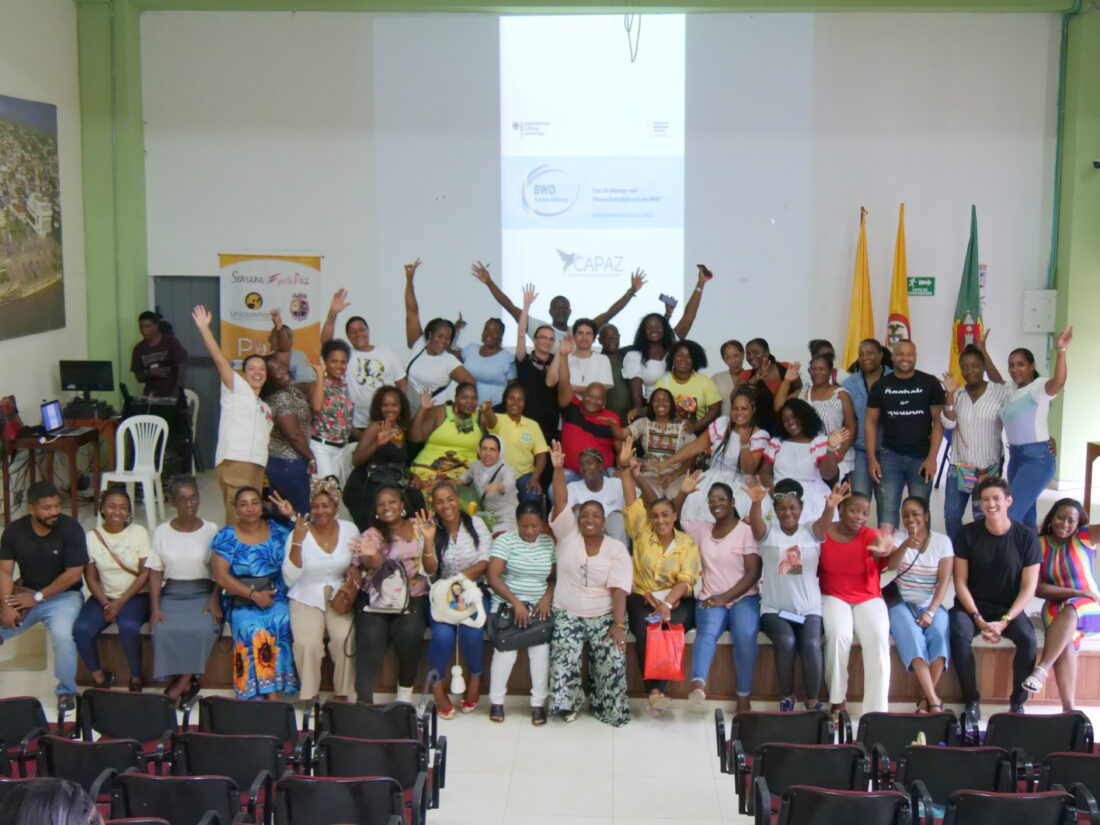
Resistance, education, and peace initiatives in the CAPAZ Slam in Chocó
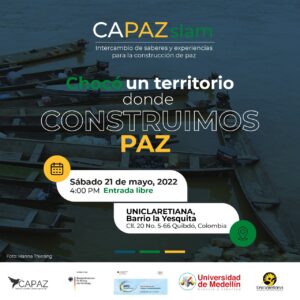
The Science and Education Diplomacy project continues with the CAPAZ Slams – forums for the exchange of knowledge and experiences for peace building.
The last CAPAZ Slam was held on May 21 in Quibdó, Chocó. At Uniclaretiana, we learned about 5 research and peace-building initiatives on education, coexistence, and resistance, led in Quibdó by different collectives and educators who are committed to peace-building from within their territories.
At CAPAZ, we believe it is crucial to raise awareness of peace initiatives underway in different parts of Colombia. One of these is Chocó: a region that has been particularly affected by the armed conflict and where it is still present today. The purpose of the CAPAZ Slam is to raise public awareness of the peace and reconciliation projects that are being carried out in these regions, while we brign together both academia and the people who are building peace locally on a daily basis.
What is CAPAZ Slam?
At the Education and Science Diplomacy project, we are convinced that it is essential to publicize, share, and discuss the knowledge, experiences, and findings of those who dedicate their academic vocation and their collective work to these issues.
As such, we ask ourselves, how can we get this knowledge out of the university, out of the auditorium, or out of the usual academic conferences and events? All of the above are ways of disseminating, communicating and exchanging knowledge, but with the CAPAZ Slam we want to go further, where academia does not always go. And to do so, we need to present that knowledge in a familiar, entertaining, conversational, and creative way.
In a few minutes, the participants of the CAPAZ Slam present their research and social construction projects on conflict and peace in front of an audience, exploring other paths. Thus, science, research and peace education enter the stage. We hope that more people will be as enthusiastic about the CAPAZ Slam as we are.
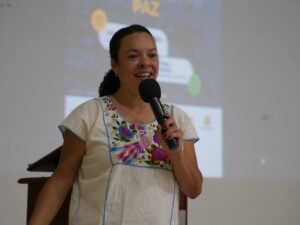
CAPAZ Slam III in Quibdó, Colombia
The following initiatives took part in this version of the CAPAZ Slam:
- «Sembrando semillas para la sana convivencia» (Sowing seeds for healthy coexistence) – Video and cultural action.Beyffan Faisury Ayala Mosquera and Yadira Córdoba Cabrera are mentor-teachers at the Luis Lozano Scipión Educational Institution in Condoto. Their initiative has been implemented in the municipality of Condoto, Chocó, and is part of the peacebuilding process in the educational space. It was presented in an audiovisual and cultural exhibition.
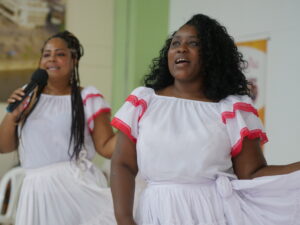
2. «El etiquetamiento de los docentes a los ‘niños problema’» (Teachers’ labeling of ‘problem children’) – Rima
Yaneth Katerine Martínez Parra is a mentor-teacher at the Antonio Abad Hinestroza Educational Institution in Atrato, Yuto. This initiative is based on the idea that it is important to reflect on teachers’ labeling of the behavior of ‘problem’ children and to listen to the narratives of students – who in the school are mainly Afro, indigenous, mestizo, and Venezuelan – in order to understand their realities.
3. “La mediación” (Mediation) – Rima
Led by Rosa Lenis Ibargüen Torres, This research project investigates mediation as a strategy for conflict resolution in 6th grade students at the Institución Urbana Antonio María Claret of Quibdó. It explores the main school conflicts among the students.
4. “Apego al territorio colectivo” (Attachment to the collective territory ) – Community poetry
Ramiro Rodríguez Padilla proposes poetry as a collective action to refer to the memory of the cycle of violence experienced in El Atrato and how leaders, women leaders, elders, young people, and our communities have suffered these cycles.
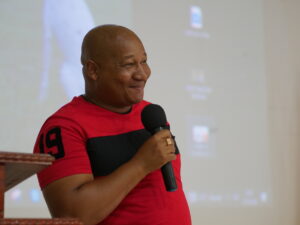 Ramiro Rodríguez Padilla propone a la poesía como acción colectiva para hacer referencia a la memoria del ciclo de violencias vividas en El Atrato y cómo los líderes, las lideresas, los Mayores, los jóvenes y nuestras comunidades han sufrido estos ciclos.
Ramiro Rodríguez Padilla propone a la poesía como acción colectiva para hacer referencia a la memoria del ciclo de violencias vividas en El Atrato y cómo los líderes, las lideresas, los Mayores, los jóvenes y nuestras comunidades han sufrido estos ciclos.
5. “COCOMACIA, opción por la vida” (COCOMACIA, a choice for life) – A song by Kelly Johanna Salas Mena
The Consejo Comunitario Mayor de La Asociación Campesina Integral del Atrato – COCOMACIA is a non-profit organization that works to support its members through formative, constructive, and educational processes, with the support of its associates and the international community. It focuses on promoting the good use of natural resources, protecting human rights, and improving quality of life through productive projects that allow them to be self-sufficient.
We thank all the participating initiatives, the public, Uniclaretiana, the CAPAZ team and Universidad de Medellín for making this event possible.
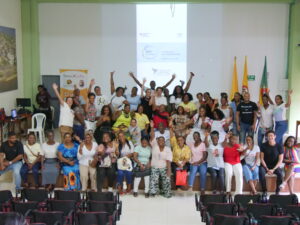
Fotos: Hanna Thiesing.



